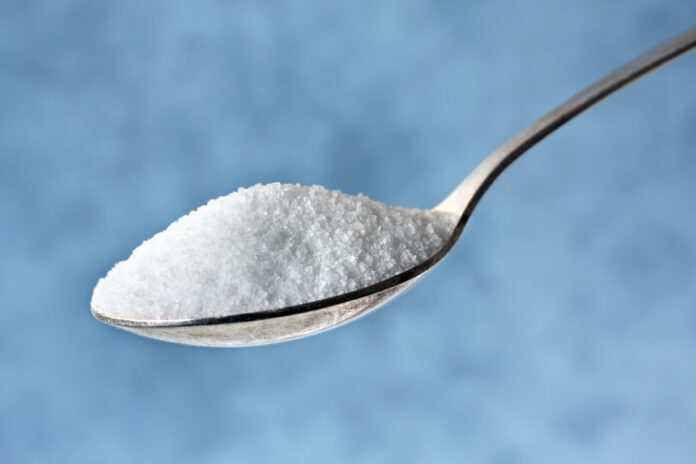I recently bought a yogurt that was sweetened with allulose. What exactly is this sweetener, and is it safe?
You’re probably familiar with so-called non-nutritive sweeteners such as aspartame, sucralose, saccharine, and stevia, which have few, if any, calories. Also called psicose, allulose is a relative newcomer that is a bit different from other such sweeteners (a.k.a. sugar substitutes) on the market.
Allulose is a carbohydrate—more specifically, a monosaccharide sugar. Categorized as a rare sugar (meaning it is present in only small amounts in nature), it is found in brown sugar, dried fruits, maple syrup, wheat, and some other foods and has a slightly different chemical structure than traditional monosaccharide sugars such as glucose and fructose. Allulose is also commercially made from corn and beets and is available as a tabletop sweetener in addition to being in reduced-calorie foods.
Allulose acts as a low-calorie sugar alternative because, though it is only about two-thirds as sweet as sugar, it has only 10 percent of the calories—0.4 calories per gram compared to 4 calories per gram in sugar. Practically speaking, that means that while a food with, say, 10 grams of added sugar will increase calories by 40, the same amount of allulose will add only 4 calories. Moreover, there’s some evidence that humans don’t absorb and metabolize allulose very well.
The FDA considers allulose safe and notes that although it is a carbohydrate that must be listed under “Total Carbohydrate” on the Nutrition Facts panel, it doesn’t have to be counted toward either “Added Sugars” or “Total Sugars” on the label because it’s poorly metabolized, provides virtually no calories, and doesn’t contribute to dental decay.
The nonprofit consumer advocacy group Center for Science in the Public Interest (CSPI) supports the FDA’s exclusion of allulose from nutrition labels as a sugar but considers it an ingredient that “certain people should avoid” because it can lead to gastrointestinal (GI) discomfort, such as bloating, pain, and diarrhea if consumed in too large an amount. CSPI has further urged the FDA to require that products containing allulose carry warning labels about the potential for GI distress.
How much is too much? A 2018 study in the journal Nutrients investigated the impact of allulose on GI symptoms and proposed a maximum of 0.4 grams per kilogram of bodyweight in one sitting, and a maximum of 0.9 grams per kilogram of bodyweight daily. For a 150-pound person, this would be about 27 grams and 61 grams, respectively. For reference, CSPI reports that a no-sugar-added Greek yogurt (from Chobani) contains 4 grams of allulose per serving; an energy bar (Quest Hero), 11 to 13 grams; and a breakfast cereal (Magic Spoon), 5 to 10 grams. But many products do not disclose how much allulose they contain (and those that do tend to do so in the context of listing “Net Carbs,” a controversial concept).
Potential GI side effects aside, allulose appears to be safe in limited quantities. But does it provide any benefits? At present, most rare sugars haven’t been rigorously studied, but researchers are looking into them with hopes that they might offer physiological and cardiometabolic benefits, including weight loss, reduced insulin resistance, and better insulin control. In a systematic review of research on rare sugars, published in Nutrition Reviews in 2022, some studies found that consumption of allulose improved glycemic response after a meal, which might eventually have a positive effect on body weight and body fat, possibly by slowing the release of glucose into the bloodstream.
But before you get too enthusiastic about this novel low-cal sweetener—or any other type of sugar substitute—some words of advice: While non-nutritive sweeteners can help you cut calories, there’s still no conclusive evidence they help with long-term weight loss overall. In fact, a few studies have linked some of them to decreased satiety and higher body weight, and despite their growth in popularity over the years, Americans have only gotten fatter. There are also data suggesting that some sugar substitutes can negatively affect glucose control as well as the microbiome in the large intestine.
BOTTOM LINE: A modest use of sugar substitutes, including allulose, is reasonable if it helps you cut down on sugar, which has unquestionable adverse effects. But until there is stronger evidence showing that these substances are truly safe and effective for weight loss, the best strategy is to keep sweets—whatever the sweetener—to a minimum.





